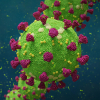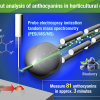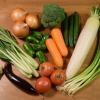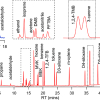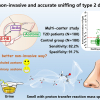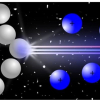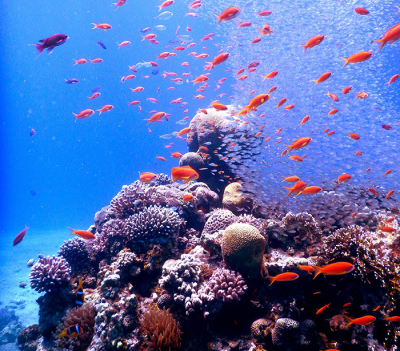
The team identified that one particular species of the photosynthetic organisms called “zooxanthellae” is able to change part of its chemical make-up to survive warmers seas, which prove fatal to other similar species of zooxanthellae. The survival of these single-celled organisms is important as they help protect corals from the risk of “bleaching”.
Corals live in a mutually beneficial relationship, a symbiosis, with zooxanthellae—where the tiny algae gain shelter, carbon dioxide and nutrients, while corals get photosynthetic products that can provide them with up to 90 % of their energy needs. If temperatures rise just 1 ˚C above the summer maximum the photosynthetic machinery of the zooxanthellae can start to malfunction and symbiosis breaks down. As a consequence, the brownish-coloured algal symbionts are lost and the coral’s white limestone skeleton shines through its transparent tissue—a phenomenon known as “coral bleaching”. This can lead to a coral starving, falling victim to disease and often dying.
It is already know that some species of zooxanthellae are more tolerant to heat than others, but this latest study paves the way to more accurately identifying which corals will be able to survive successfully in warmer waters of the future. Findings are published in Coral Reefs.
Scientists from the Coral Reef Laboratory at the University of Southampton worked with colleagues at University Hospital Southampton to use the hospital’s mass-spectrometry facility to analyse lipid molecules—the building blocks of the membranes of zooxanthellae cells. Among other functions, these membranes play a key role helping the algae to harness energy from the sun and convert it to food. The team compared a heat tolerant species of zooxanthellae with one which is less tolerant and found the more resilient of the two could adapt the lipid molecule composition of its membranes to withstand stress from higher temperatures. They discovered different chemical properties in the thermotolerant species as compared to their less resistant counterparts.
Lead researcher and marine biologist at the University of Southampton, Dr Cecilia D’Angelo said: “This is an important step forward in understanding how coral can handle global warming. Our findings show the coral symbionts use multiple strategies to protect themselves from excess heat. It is encouraging to see that corals have mechanisms in place to adjust to high seawater temperatures, however, not all of them have the same capacity to do so. One symbiont species studied as part of our research became severely stressed at 30 ˚C. This temperature is considered a critical threshold for coral survival in many places of the world. The failing of defence mechanisms at temperatures above this threshold can explain observations of our previous research that only very few symbiont species are able to thrive in extreme temperature environments such as the hottest coral water of the world, the Persian/Arabian Gulf, where water temperatures hit summer maxima of up to 35 ˚C on a regular basis. Moreover, our results will help to explore the inner workings of phytoplankton algae, the most abundant photosynthetic organisms on the planet.”
Dr D’Angelo concluded that more research can be conducted in this area: “Global warming in combination with other forms of environmental stress such as nutrient starvation has the potential to greatly reduce the diversity of coral symbionts and their hosts. Through our collaboration with colleagues at the University Hospital Southampton we can combine coral experimentation under tightly controlled laboratory conditions with molecular analysis using state-of-the art mass spectrometry. This puts us in an excellent position to understand the mechanisms that enable corals to respond to their environment and determine to which extend these processes will help the corals to adjust to rising seawater temperature.”





